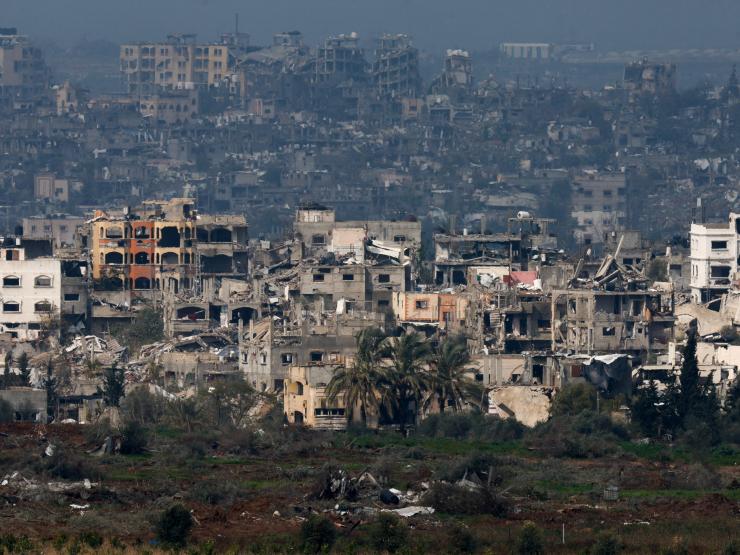The Bishop of Southwark has warned that Israel risks 'becoming its own worst enemy' if it doesn't 'look to negotiate an end to its occupation of Palestinian territories.'
Rt Rev Christopher Chessun, who was speaking after returning from a five day visit to Jerusalem, said it's vital to find a way to ensure the flourishing of both Israelis and Palestinians
Nick Megoran, a lecturer specialising in Geopolitics and Peace-making at Newcastle University, told Premier it will take "a great deal of will from international supporters" on both sides, and that incentives for peace are currently lacking.
Megoran says a big change has been that recent American administrations have been "more pro Israel", which he says has reduced prospects of a two-state solution. That policy, supported by the UK since the days of Yasser Arafat, would give Palestinians more independence and self-governance.
"Donald Trump famously recognised Jerusalem, which is a divided city between the the Arabs and the Israelis, as the capital of Israel, and has given very much one sided support to the to the Israelis," Megoran says, "you've seen a radicalization of the opposition amongst the Palestinians, towards violent jihadism... and the sort of atrocities we saw on October 7th."
He says the path to peace is more challenging than it used to be, "at the moment there is little incentive to be peacemakers... Israel and Hamas have had a number of wars over the past 15 years, and they've entered in in a ceasefire each time.
"A ceasefire is not peace. A ceasefire is a temporary truce."
A number of Palestinians are Christians who have lived in the land of Jesus since the earliest days of Christianity.
Megoran says voices for peace do exist in the Middle East, but they struggle to be heard "in all the clamour for war".
As a result, he says, "the conflict has become more and more violent and more and more dangerous.
The country's military campaign, sparked by co-ordinated surprise attacks by Hamas into Israel on 7th October last year, has been one of the deadliest and most destructive in recent history.
At least 25,000 people are believed to have died, and an estimated 85% of Gaza's population has been displaced.
The Foreign Secretary, Lord Cameron, is due to visit the Middle East, to meet with leaders on all sides. He is expected to push Israel's Prime Minister Benjamin Netanyahu to restore essential utilities like water, electricity and fuel in the devastated region, where the United Nations says a humanitarian disaster is unfolding, as a quarter of Gaza's civilians face starvation.
As attacks by Houthi rebels, continue in the Red Sea, in support of Hamas, there are fears that regional instability could lead to the conflict spreading beyond the Middle East.
Lord Cameron said: "No-one wants to see this conflict go on a moment longer than necessary. An immediate pause is now necessary to get aid in and hostages out. The situation is desperate."
Nick Megoran says Christians need to support those fighting for peace, "The Lord Jesus said that those who live by the sword will die by the sword. You see this cycle of violence, and what we need to be seeking to do as as a church, as outsiders, is supporting those peacemakers and praying for peace."




